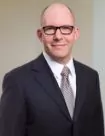- within Intellectual Property topic(s)
- with Inhouse Counsel
- in United States
- with readers working within the Telecomms and Law Firm industries
The Federal Circuit issued its long-awaited en banc opinion in EcoFactor v. Google,1 which provides further clarity on the admissibility standards for damages experts under Rule 702. This decision reverses the original panel's ruling, which had raised concerns that the Federal Circuit had previously lowered the admissibility standard for damages experts.
In an 8-2 decision written by Chief Judge Moore, the Federal Circuit reversed the district court's denial of a motion for new trial on damages, finding that the district court abused its discretion in failing to exclude the opinion of EcoFactor's damages expert. The majority found that the three lump-sum license agreements that EcoFactor's expert relied upon were insufficient to support his conclusion that the licensees had agreed to a certain royalty rate. The case has now been remanded back to the district court for a new trial on damages.
Previous Panel Decision
The original panel decision2 appeared to lower the admissibility standard for damages experts. Using the highly deferential abuse of discretion standard, the original panel affirmed the district court's admission of EcoFactor's expert, suggesting that the Federal Circuit should be wary of setting the standard for admissibility too high and assuming the role of the jury. Rather, the jury should be allowed to determine whether they are persuaded by the expert's opinion.
En Banc Decision
The en banc Federal Circuit has now addressed these concerns, emphasizing the importance of a thorough and reliable methodology in expert testimony. The court clarified that while Rule 702 is intended to be flexible, the district court should not abdicate its role as gatekeeper when the expert relies upon incorrect facts.
The three licenses were lump-sum license agreements, and each had language to suggest that the licensor thought that the lump sum was based upon a certain royalty rate. The key problem for EcoFactor's expert was that he concluded that the licensees had agreed to the royalty rate, even though the text of the agreements suggested the licensees had not. The majority explained: "Where, as here, the relevant evidence is contrary to a critical fact upon which the expert relied, the district court fails to fulfill its responsibility as gatekeeper by allowing the expert to testify at trial."
Notably, the expert could rely upon the license agreements to the extent that he was relying upon it as evidence of what the licensor would have agreed to: "Mr. Kennedy could have relied upon the Schneider license as evidence of the amount EcoFactor would agree to as the willing licensor, but the license cannot be read to support Mr. Kennedy's testimony that Schneider was agreeing to pay the $X royalty."
Finally, the majority faulted the district court judge for not providing an explanation regarding why he did not exclude the expert's testimony: "An absence of reviewable reasoning may be sufficient grounds for this court to conclude that the district court abused its discretion." This seems to open the door to challenging evidentiary rulings on appeal in situations where a district court might make on-the-fly decisions without explanation.
The Dissents
There are two dissents. One is written by Judge Reyna, who was part of the original panel and had ruled to affirm the district court, and a second is from Judge Stark. Both disagree with the majority's weighing of the evidence. Judge Stark explains that he reads the majority opinion as limited to the facts of this case, and that it should not be applicable to most cases: "today's decision only governs where an expert's testimony is undoubtedly contrary to a critical fact upon which the expert relies. Thus, in the vast majority of patent cases, where the relevant evidence the experts are considering can support competing conclusions, the Majority Opinion is inapplicable."
Judge Stark further worries that the majority opinion will open the door to judicial resolution of factual disputes with respect to damages experts because experts may rely upon disputed facts, and the jury — and not the judge — should have the opportunity to resolve those facts: "Notwithstanding the narrowness of the Majority's holding, there is a risk that its opinion will be misread as requiring district judges, in pursuit of their gatekeeping responsibilities, to invade the province of jurors and resolve fact disputes. Regrettably, my colleagues seem to have opened the door to turning Rule 702 into a vehicle for judicial resolution of fact disputes, at least with respect to damages experts. My concern is grounded in the Majority's apparent conclusion that the district court abused its discretion by permitting Mr. Kennedy to testify to an opinion that rested on disputed facts. Disputed facts, however, are not necessarily insufficient facts and data on which a reliable expert opinion may be based."
Conclusion
This en banc decision potentially opens damages experts to more scrutiny regarding the "facts" they rely upon in informing their opinions. This could lead to stricter gatekeeping by district courts. Damages experts must be prepared to provide support for the facts underlying their conclusions to withstand this heightened scrutiny.
Footnotes
1 https://www.cafc.uscourts.gov/opinions-orders/23-1101.OPINION.5-21-2025_2518737.pdf
2 https://www.cafc.uscourts.gov/opinions-orders/23-1101.OPINION.6-3-2024_2327090.pdf
The content of this article is intended to provide a general guide to the subject matter. Specialist advice should be sought about your specific circumstances.

